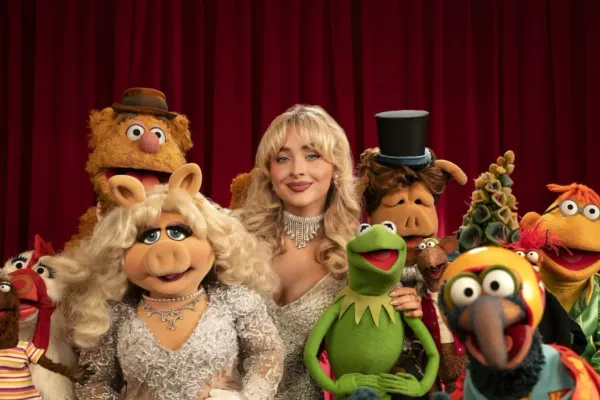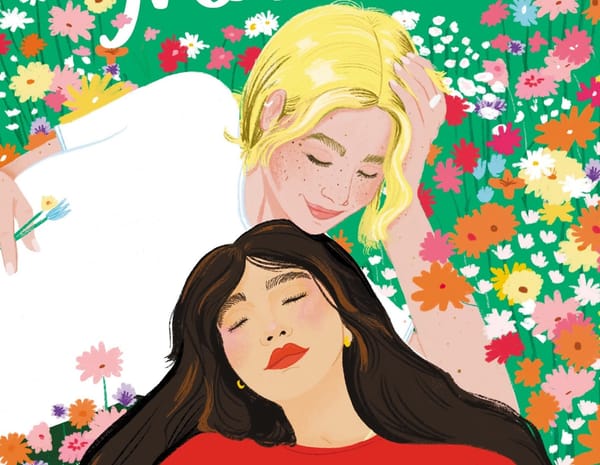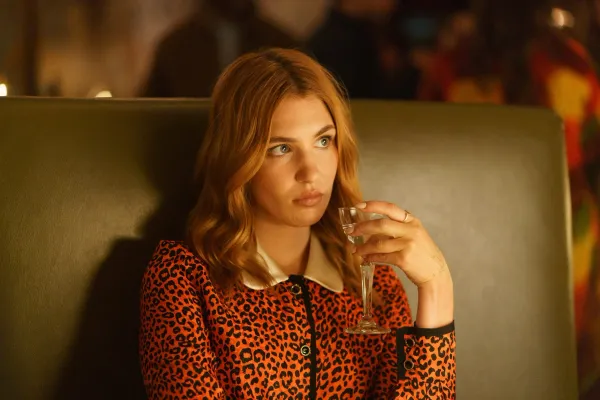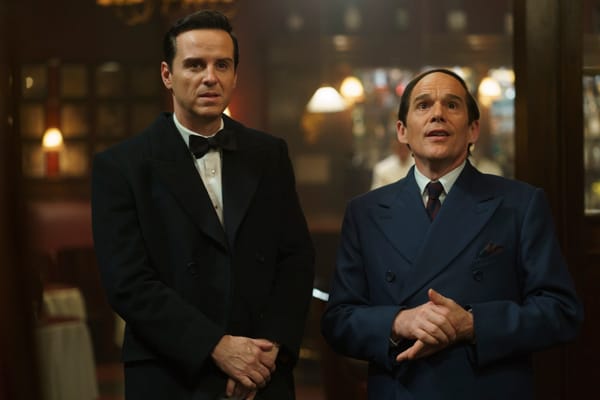Episodes: Green Acres and the birth of the surreal sitcom
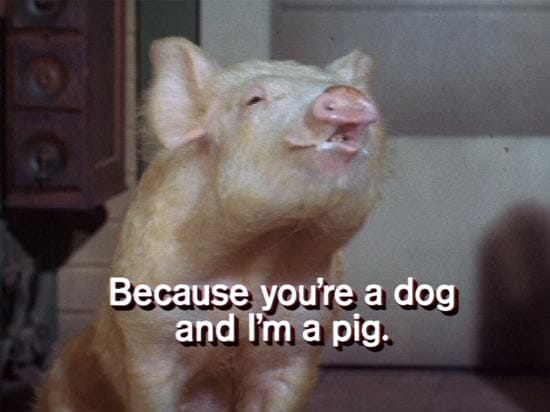
There are a lot of TV shows I love that people reflexively write off, but none gets written off as often as Green Acres, CBS's 1965 to 1971 sitcom about two rich city dwellers who decide to get a taste of the country life and descend into a bacchanal of madness.
Because of the people who made it, Green Acres usually gets dismissed as dumbass yokel humor. It got on the air because CBS looked at the success of The Beverly Hillbillies (the top sitcom of the '60s in the Nielsens) and Petticoat Junction and figured, hey, maybe Paul Henning (who was behind both) could work his magic a third time. But Henning didn't terribly want to create a third show, so he asked Jay Sommers to do it for him. Sommers updated his radio sitcom Granby's Green Acres, which was fine, as these things go, but the opportunity to add visuals to the show's conceit led Sommers to very quickly push his series to weirder and weirder places.
Hillbillies wasn't much of a show after a season or two (there just wasn't enough to the premise, for whatever reason), while Petticoat Junction is one of my least favorite sitcoms ever made. But Green Acres, man, Green Acres is my jam, and it's low-key one of the most important sitcoms ever made.
I didn't really realize this until I really started getting into reading about the history of TV in college. At the time, I had reflexively written off my enjoyment of Green Acres when it made its Nick at Nite run as the sort of thing that appealed to an 11-year-old but wouldn't really appeal to my more mature sensibilities at 19. But the name check of the series on NewsRadio, one of my favorite shows of all time, made me think that perhaps I'd missed something, and indeed, that show's creator, Paul Simms, had cited the anarchic lunacy of Green Acres as a major influence on his show. (It was also an influence on both of Bob Newhart's long-running sitcoms, if we're going to trace the history of weirdo sitcoms.)
I sometimes say that Green Acres was the first "surreal" sitcom, and I'm not sure that if you check it out, you'll think what I say makes any sense. Certainly its humor seems very quaint now. But something about a small town setting has always given TV license to create shows where the humor seems predicated on the idea that The Wicker Man could break out at any moment. And Green Acres is sort of ground zero for that, so far as I can tell.
Certainly there were surrealists in the first decade of television. Soupy Sales was chief among them, and Groucho Marx's You Bet Your Life had a hefty dose of the bizarre. But the sitcom form always trended toward a sort of "well-made play" philosophy (probably because its earliest writers had experience in either radio, Broadway, or vaudeville). The carefully built world of the series could be visited by confusion and disruption, but there should never be a sense that the characters felt discomforted. The sense that things were about to tip over into outright madness could never be present.
If there's a sitcom that could perhaps be called "surreal" before Sommers' show, it's The Phil Silvers Show. But that series is, ultimately, about how even its disruptions are orderly within the logic of its universe. (It takes place, after all, in the military.) And even if you look at something like Hillbillies, it has its share of broad silliness, but it's ultimately about the safety of home and hearth, about how you get to bring your family with you, even to an unfamiliar place.
And what's remarkable about many of the other high-concept sitcoms of the '60s is how few of them even flirt with anarchy. They are, instead, about trying to process the social upheaval of the decade through fantastical devices. The first two seasons of Bewitched, for instance -- which are well worth watching -- are essentially about the growing sense that women could have just as much power in marriage as men, and what did that mean for everybody? Even something like Gilligan's Island -- an opportunity for a surreal, anarchic sitcom if ever there was one! -- ultimately turned out to be about how various stereotypes could get along if they were all just forced to share an island together.
Green Acres is different because its protagonist makes his own hell.
Famously, the theme song of the show posits that our hero, Oliver, is thrilled to be living the rugged life out in the country, while his wife, Lisa, dearly misses the big city. But outside of a couple of episodes near the very beginning, Green Acres completely ditched this premise. Lisa, see, loves living in the country, while Oliver struggles to deal with how crazy he finds the others who live in the little town of Hooterville. This is a place where pigs run for office, where the same handful of people seem to hold nearly every job in town. His wife gives herself over to the insanity; Oliver can never make peace with it.
Slowly but surely, Sommers introduces what might be the series' most influential idea: the characters know they live in a sitcom, for the most part, and they're pretty much fine with it. (When Oliver realizes he does, however, he always goes a little mad.) The most famous example of this is when the characters remark on the credits rolling by, amused to see them, but these sorts of fourth-wall breaks became more and more common.
Again, if you watch this for the first time in 2016, it's not going to seem all that groundbreaking, because these innovations have so thoroughly been swallowed by TV as a whole. But Green Acres, like most small town sitcoms before and after it, holds up remarkably well, perhaps because its setting, by virtue of its set-aside-ness, really can't become dated. If Hooterville exists in 2016, it's probably much the same as it was in 1965, and Oliver is probably still there, shouting about how nobody seems to realize just how nuts the world is.
That sense of some dark madness lurking just over the corner gives Green Acres almost a tinge of the horrific from time to time. You wouldn't have to push too hard to make it, say, a show where Oliver and Lisa move to Innsmouth and meet a bunch of friendly townsfolk who are trying to summon the dread Old Ones. But then it wouldn't work as well as it does. Oliver becomes the establishment of the '60s, horrified by how cherished social mores seem to crumble before his eyes, while Lisa dives in whole hog. (It certainly helps that perhaps the town's most famous citizen really is a hog.)
The small town sitcom is often how America works through some of its deepest anxieties about itself. Newhart savagely pushed back against the rise of the yuppies, while Northern Exposure and Gilmore Girls play almost as liberal fantasies about finding ways to sustain progressive ideals in a world run by conservatives. (That the solution seems to be "build a town filled with quirky oddballs cut off from the world" in both is a little curious.) And Parks and Recreation is about the impossibility of governing those who don't want to be governed, a big concern in the Obama era.
But what I love about Green Acres is how directly it fights against the ideal of the small town, the place where, Sarah Palin would say, we grow good people. Yes, the people of Hooterville are mostly "good," but they've also lost their minds. If small towns are the bedrock of America, it's remarkable to see how often our fiction about them suggests the foundation is cheerfully rotting away.
--
Episodes is published three-ish times per week, and more if I feel like it. It is mostly about television, except when it's not. Suggest topics for future installments via email or on Twitter. Read more of my work at Vox Dot Com.

